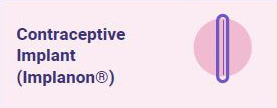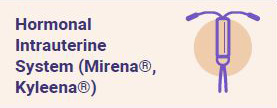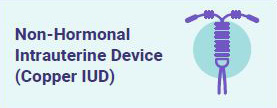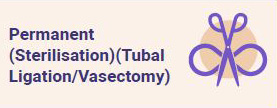Family planning and contraception
If you’re having sex with a male and you don’t want to get pregnant, you need to use contraception. Contraception is also called birth control or family planning. Using contraception reduces your risk of getting pregnant when you have sex and no matter what contraception you choose, you still need a condom to protect you from sexually transmitted infections. Using contraception allows you to space your pregnancies and achieve optimal health between pregnancies.
Choosing your contraception
This Contraceptive Methods (PDF) fact sheet gives an overview of the methods of contraception available in Australia. To find the best one for you, speak with a doctor or nurse, or your local GP or healthcare provider.
Contraceptive methods that don’t depend on you remembering to take or use them.
Contraceptive methods that you have to use and think about regularly or each time you have sex.
Accessing Contraception
During your antenatal care journey at WNHS, contraception and how to access it will be discussed with you.
If you are attending for gynaecological care, please discuss your contraception needs with you healthcare teams, and they can assist you.
Contraception is available in the community at General Practices, or local healthcare providers.
The following Women’s Healthcare centres are also available to assist with contraception.
Women's Health Centres
Metropolitan |
Regional |
|
Fremantle Women's Health Centre (external site) Ishar Multicultural Women's Health Centre (Mirrabooka) (external site) Midland Women's Health Care Place (external site) South Coastal Women's Health Services (Rockingham) (external site) Women's Health and Family Services (external site) Women's Health and Wellbeing Service (Gosnells) (external site) |
Goldfields Women's Health Care Centre (Kalgoorlie) (external site) Hedland Well Women's Centre (external site) Nintirri Centre (Tom Price) (external site) South West Women's Health and Information Centre (Bunbury) (external site) |
What if I can’t access contraception in the community?
The Procedural Clinic for LARC (see below) at WNHS KEMH sees women from across WA for the insertion and removal of Long-Acting Reversible Contraceptive (LARC) methods when this is unable to be managed in primary care for medical reasons or where there has been failure of insertion or removal in primary care.
Non-hormonal and hormonal intrauterine devices and subdermal contraceptive implants are available at this clinic.
Patients will be referred back to their GP for follow up after insertion of LARC.
Procedural Clinic for Long Acting Reversible Contraception (LARC)
The procedural Gynaecology clinic was established in November 2017 to provide a specialist outpatient procedural service for women.
This clinic sees women referred from within the hospital or other hospitals and community clinics for the insertion of Long acting reversible contraceptive (LARC) such as hormonal and non-hormonal IUD’s and contraceptive implants, as well as other problems related to LARC such as failed insertion or removal.
LARC is an excellent contraceptive option with efficacy over 99%.
It is easy to insert, is reversible and is effective for between three and 10 years depending on the type chosen. It also significantly reduces menstrual blood loss in over 90% of women, thereby reducing incidence of iron deficiency and anaemia. Women with very heavy menstrual bleeding can also be referred to this clinic for LARC insertion.
Patients who do not want hormonal contraception have a choice of Copper IUCDs which are effective for 5, or 10 years.
The Procedural Gynaecology clinic trains resident doctors and registrars to insert and remove intrauterine contraceptive devices, and the clinic sees patients in the East Wing Clinic once per week.
More information on contraception options.












